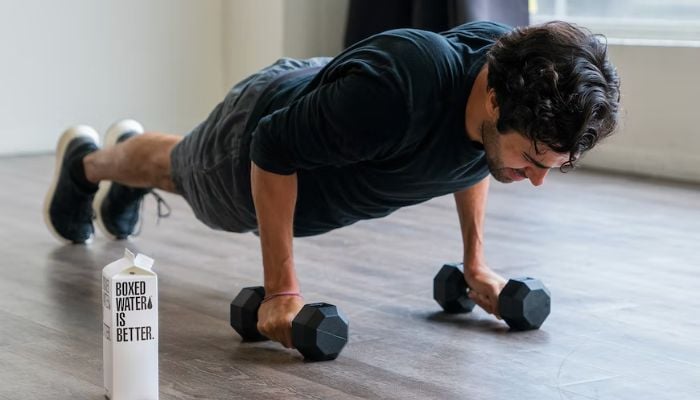This is the best time to work out
Optimum time to work out is immediately before you get ready for bed if you can only fit 20 minutes of activity into your day
Finding the time to fit in a workout can be challenging enough; to make matters worse, there is considerable discussion about the ideal time of day to do it among the fitness community.
No matter when you exercise, there are numerous health advantages to moving frequently, including a better heart, increased strength, and endurance. The majority of people prefer to work out when it best fits their schedule, thus they frequently have no control over what time of day they choose to be active.
However, studies have shown that the time of day you choose to exercise can have a variety of effects on your workout.
According to a CNET report, experts believe that the greatest time to exercise is whenever you can, let's get that out of the way first. Unfortunately, not everyone has time in their schedules for a 90-minute workout, green smoothies with collagen, and a 20-minute session with a Theragun.
The greatest time to work out is in the morning if you can only do it before work. You are likely to never engage in physical activity if you save it for busy evenings.
The optimum time to work out is immediately before you get ready for bed if you can only fit 20 minutes of activity into your day.
Ask yourself whether there's a way you can fit it into your morning instead. Maybe you adjust your bedtime and wake-up time by 20 minutes. This way, you can still fit in your 20 minutes of exercise, but your schedule will be slightly different.
Benefits of morning workouts
According to numerous research studies, morning workouts have a distinct advantage.
Establishing a routine
Simply because dawn exercises provide less opportunity for justifications, morning exercisers are frequently more dependable. If you exercise first thing in the morning, you can't miss it later because of a backlog of tasks.
Improving sleep cycle
A morning exercise habit, however, can help your circadian rhythm change so that your body is naturally more awake in the morning and more fatigued in the evening.
This will help you fall asleep sooner and allow you to exercise in the morning once more. Waking up early may initially be challenging. According to several studies, exercise in the morning appears to improve deep sleep more than activity in the evening. Additionally, sleep promotes muscular growth, so if your circadian rhythm and sleep cycle improve, you might even see greater strength improvements.
Burning more fat
Exercise on an empty stomach has been shown to burn more fat than exercise done after a meal. This occurs because rather than using the food you just ate as fuel for exercise, your body must use existing fat stores. Another study demonstrates that exercising in the morning causes the "afterburn" to remain longer, which may aid in long-term weight loss.
Productivity
Exercise in the morning has been linked to improved energy levels, alertness, focus, and decision-making, which can lead to a more successful workday.
Mood boost
The endorphins, or "happy chemicals," your body generates in reaction to exercise can keep your mood lifted long after your hour-long workout. Morning exercises are a terrific way to start each day on a high note. A workout's sense of accomplishment can also give you motivation for the rest of the day.
Downsides to morning workouts
Early morning workouts have their disadvantages, despite the fact that they can be an effective component of a healthy lifestyle. There are a few factors that can affect your workout when you work out first thing in the morning.
- You might not have enough fuel.
- You might sabotage your deep sleep.
- Physical capability isn't at its best.
- Warm-up takes longer.
-
All you need to know guide to rosacea
-
Prevent cancer with these simple lifestyle changes
-
Experts reveal keto diet as key to treating depression
-
Skipping breakfast? Here are some reasons why you shouldn't
-
Sciences reveals shocking body response against heart attack
-
Anti-inflammatory teas to keep your gut balanced
-
Emma Stone reveals she is ‘too afraid’ of her ‘own mental health’
-
5 simple rules to follow for smooth, healthy hair












